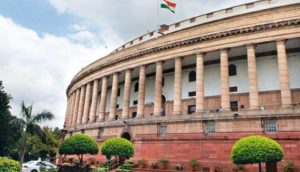Lok Sabha Ethics Committee
The Lok Sabha Ethics Committee, responsible for upholding ethical conduct among Members of Parliament in India, will address Nishikant Dubey’s complaint against Mahua Moitra. The committee’s last meeting took place on July 27, 2021. Established as an ad hoc entity more than two decades ago, the committee typically handles complaints related to relatively minor offenses.
Composition and Appointments
Members of the Ethics Committee are appointed by the Speaker for a one-year term. Presently, the committee is chaired by Vinod Kumar Sonkar, a BJP Member of Parliament from Kaushambi. The committee includes members from various political parties, such as the BJP, Congress, YSR Congress, Shiv Sena, JD-U, CPI-M, and BSP.
History of Ethics Committees
The concept of ethics panels for both Houses of Parliament was first proposed during a Presiding Officers’ Conference in Delhi in 1996. The Ethics Committee of the Rajya Sabha was established in 1997 under the leadership of then Vice President K R Narayanan. In the Lok Sabha, the idea took root during the 13th Lok Sabha, and an ad hoc Ethics Committee was constituted in 2000, becoming a permanent fixture in the House only in 2015.
The 2005 Cash-for-Query Case
In 2005, a significant case involving the expulsion of 10 Lok Sabha MPs and one Rajya Sabha MP came to the fore. These parliamentarians were accused of accepting money in exchange for asking questions in Parliament. The Lok Sabha’s motion for expulsion was based on a report from a special committee led by Chandigarh MP P K Bansal. The case in Rajya Sabha was handled by the House Ethics Committee. Notably, the BJP, which lost six MPs in this scandal, demanded that the Bansal Committee’s report be sent to the Privileges Committee for further examination.
Procedure for Lodging Complaints
Any individual can file a complaint against a Member of Parliament through another Lok Sabha MP, provided they provide evidence of the alleged misconduct and an affidavit asserting that the complaint is not “false, frivolous, or vexatious.” If the Member in question files the complaint, no affidavit is required. The Speaker has the authority to refer complaints against MPs to the Ethics Committee. The committee conducts a preliminary inquiry before deciding to proceed with a formal examination and presents its recommendations to the Speaker. A half-hour discussion on the committee’s report is also allowed in the House.
The Role of the Privileges Committee
The work of the Ethics Committee and the Privileges Committee often intersects. While allegations of corruption against an MP can be directed to either body, more serious accusations typically go to the Privileges Committee. The Privileges Committee’s primary mandate is to safeguard the “freedom, authority, and dignity of Parliament.” This encompasses privileges held by individual Members as well as the House as a whole. Breaches of privilege can be examined for MPs, and even non-MPs can be accused of breaching privilege for actions that undermine the authority and dignity of the House. The Ethics Committee, on the other hand, deals specifically with cases of misconduct involving MPs.
Month: Current Affairs - October, 2023
Category: India Nation & States Current Affairs








